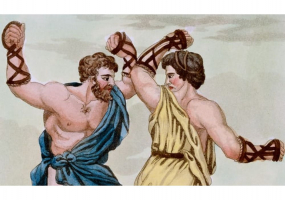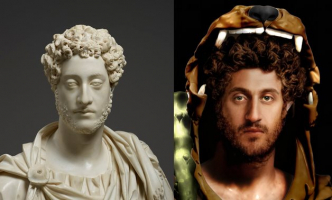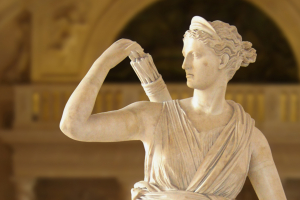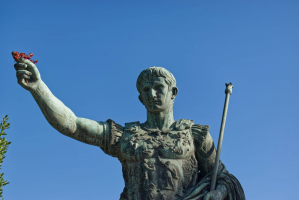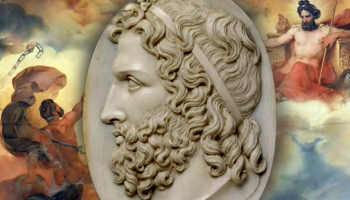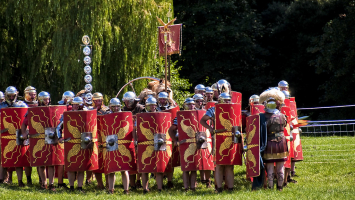Top 10 Most Exciting Roman Mythologies And Legends
The best mythologies and legends have always come from Ancient Rome and Ancient Greece. Every civilization, tradition, work of art, and work of literature has ... read more...been impacted by myths and tales. Romans have long held a strong trust in their mythical gods and paranormal occurrences. There is a myth and a mythology associated with Rome's founding. And here are 10 most exciting Roman mythologies and legends!
-
One of the most exciting Roman mythologies and legends and well-known stories from the time of ancient Rome is still taught in Italian classrooms. The legend surrounds Romulus' founding of the city in the eighth century BC, at the beginning of Rome. Males were the only people living in Rome at first, chiefly Latins, Italics, and robbers. Fear was temporarily caused by the lack of a female population among the Emperors, the Senate, and the city. Because of their terror, the Romans took women from the nearby cities and made them their wives. Both their family and the city's inhabitants would benefit from this.
The plan was rejected by all female residents of the adjacent towns, so the Senate came up with Neptune Equester, a festival with lots of Neptune God-related events and games. The closest population to Rome was the Sabines, and they disapproved of sending their women there. However, both men and women from the Sabines were drawn to the event. The Romans started fighting with Sabine males, kidnapped some 30 Sabine women, and forced them into marriage, which is how it all went wrong. Romans took the family as well as the female. In the past, kidnapping or abduction was a common occurrence rather than an isolated incident. The wife of Romulus, Hersilia, a Sabine woman, ended the war that this kidnapping caused between the Romans and the Sabines. The kidnapped ladies were initially hesitant, but eventually came to accept the Romans as their husbands.
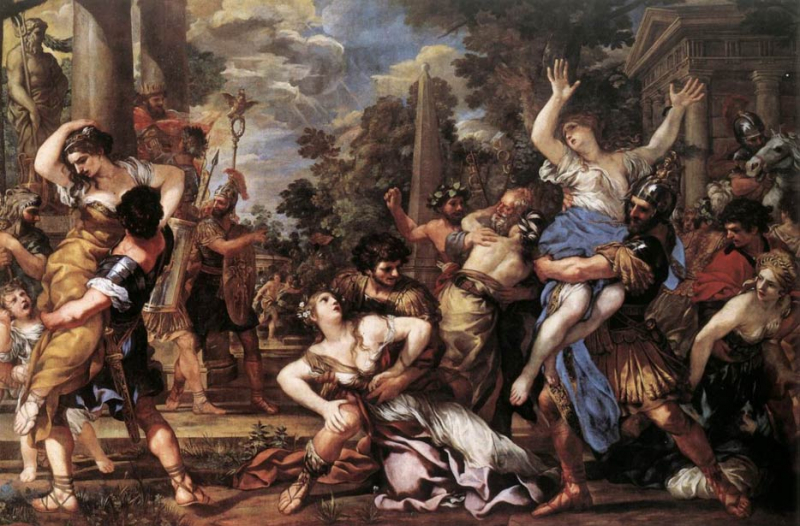
Photo: Ancient Origins 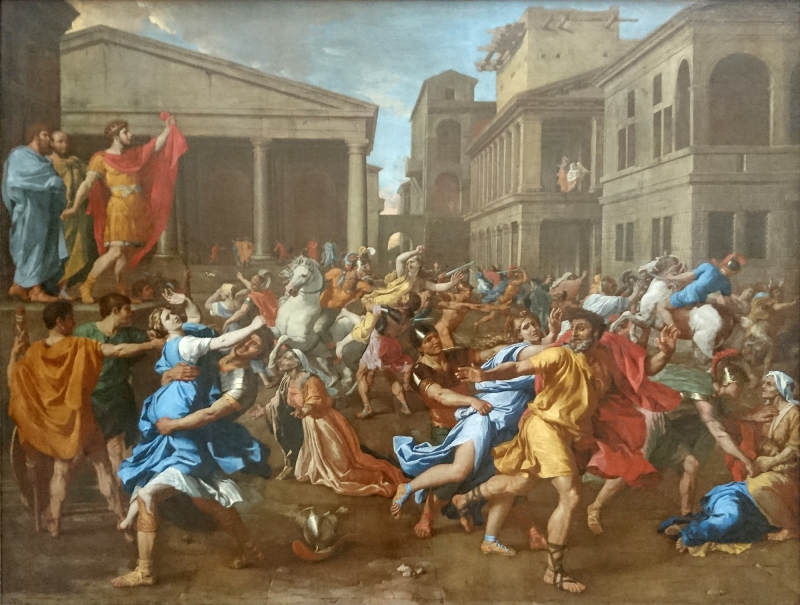
Photo: Sartle -
The Janus myth concerns the Roman deity Janus, who is known as the god of doors, beginnings, time, changes, and duality. The month of January was given his name since his character had both the beginning and the end. Everyone would reflect on the previous year as its conclusion in January and simultaneously look forward to the coming year as its start. Even the gates of the temple built in his honor would open at the start of the conflict and close at its conclusion. As the god with two faces which are war and peace, he was seen as the one who started and ended conflicts.
This particular story, nevertheless, relates to the Sabine Women's kidnapping occurrence. According to tradition, Janus blocked Romulus's path by erupting a volcanic hot spring, saving the Sabine women who were being kidnapped. All of the would-be kidnappers for the Sabine women would be drowned in the spring's hot water. The Romans successfully captured 20 women, but Janus, who had this notion, was able to save many more.
One must be careful while studying tales about Janus to discern between those that are ancient and originally Latin and those that were subsequently given to him by Greek mythographers. With the exception of the myths relating to the nymph Crane Grane or Carna, whom Janus raped and transformed into the goddess of hinges as Cardea, and to Saturn, whom he welcomed as a guest and with whom he eventually shared his kingdom in exchange for teaching the art of agriculture, Ovid only mentions these myths in the Fasti. However, in the Metamorphoses, he describes how he fathered the nymph
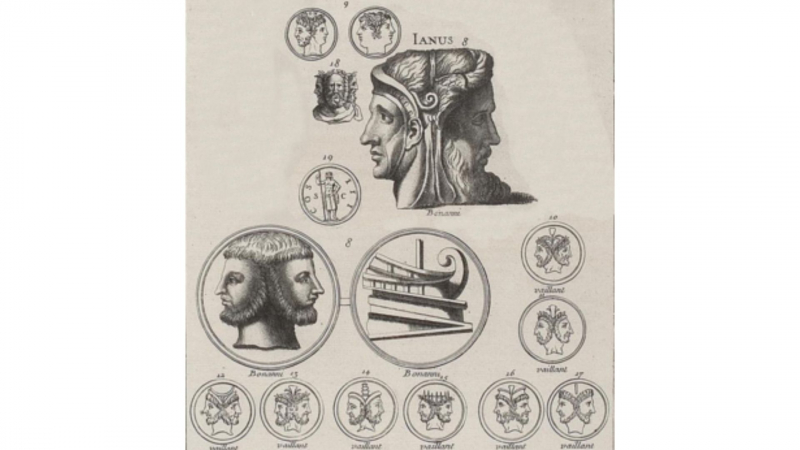
Photo: Wikipedia 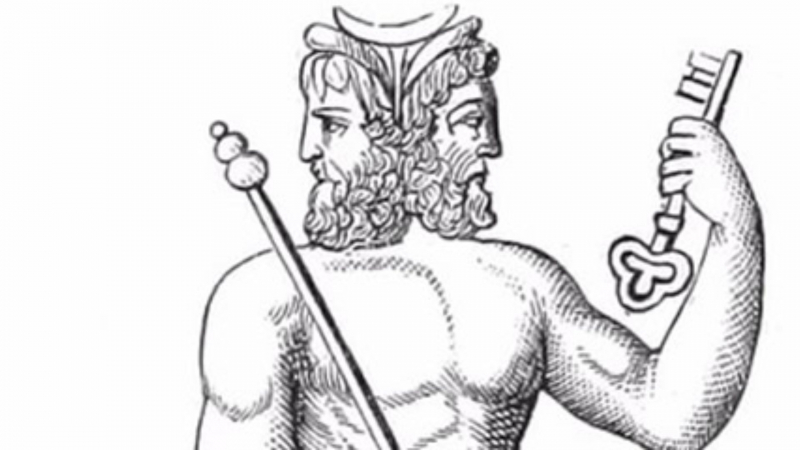
Photo: Anderson Lock -
The most thrilling as well as one of the most exciting Roman mythologies and legends from ancient Rome is the one involving Pluto and the River Styx. It has ties to the River Styx, which runs between life and death, and Pluto, the Roman god of death. In accordance with this myth, every person who passes away must cross the River Styx, the River of Death, and arrive on the other side, where they must wait to be reincarnated. When they were reincarnated, they would have a brand-new brain with no memory of their previous existence because of the waiting period making them forget their previous existence. However, in order for the deceased to cross the river to the other side, they had to be buried with a penny on their mouths since that coin served as their transportation fare.
Ferryman Charon was in charge of transporting the deceased to the other side of the river. Only if the deceased had a penny in his mouth would he allow them to ride on his boat. Without a coin in his mouth, the person who was buried would be unable to cross the wide river without trying to swim across it. Anyone who touched the river or came in close contact with it would suffer a nine-year speech disability. This result would have to be faced by even the gods, hence in ancient times, this river was regarded as the most potent river.
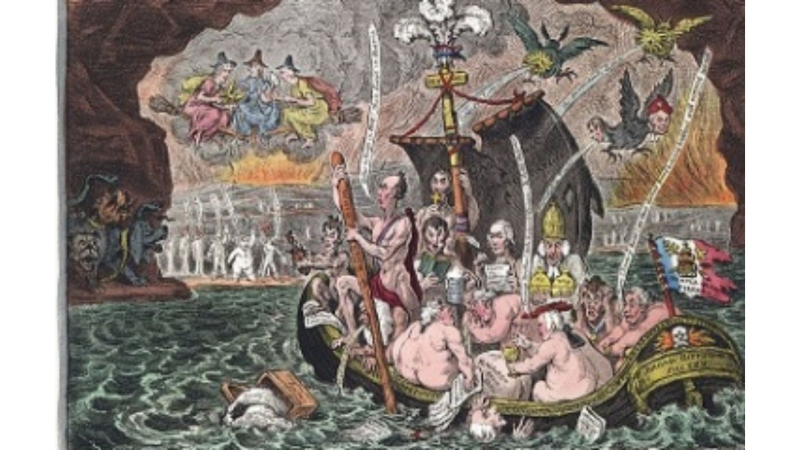
Photo: Mythology.com 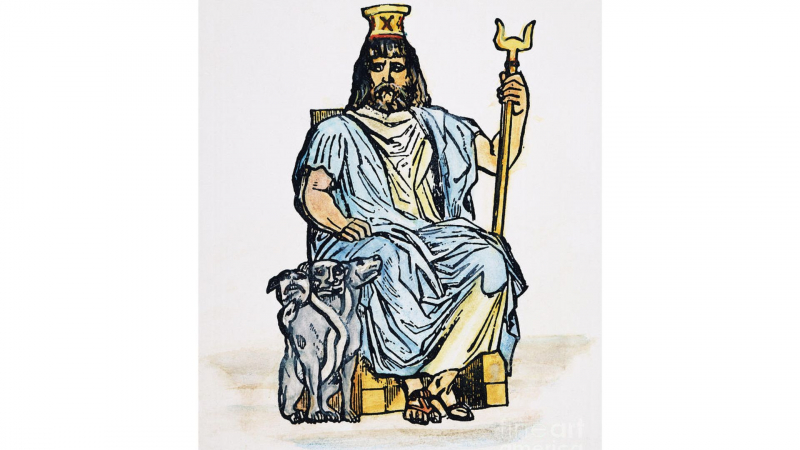
Photo: Pixels -
The narrative revolves around the hive Queen, Jupiter, the King of the Roman Gods, and Juno, the Queen of the Roman Gods. The tale claims that the hive's queen became angry when people took honey from the pack without asking. In order to protect her honey and punish the culprits, she turns to the King of the Roman Gods.
King Jupiter accepts her gift of honey, which he finds to be exceptionally tasty. He replies by asking what he can do to help her. The bee then requests that he give her a shield or sword so that she can defend the honey from being stolen by mortals. At first, Jupiter is a little irritated and inquires as to whether she meant to kill all the monarchs, including him. She goes to Queen Juno and offers her some honey, thinking that she won't get her wish granted through the King. Juno agrees with Jupiter that the honey is very tasty and requests that Jupiter grant the bee a stinger with a condition. Any bee that stings someone for stealing honey will have to pay with its life. The bee would be given the option of either sharing the honey or stinging and dying. Therefore, the blessing still holds true today: any bee who stings must pay with their lives.
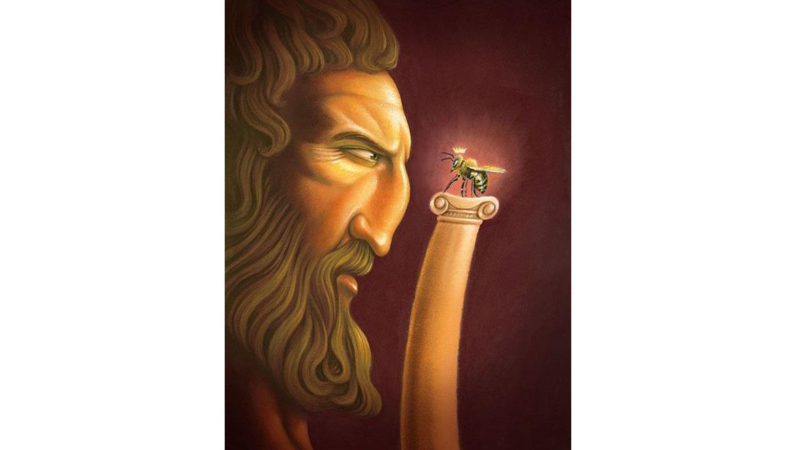
Photo: EBSQ Art 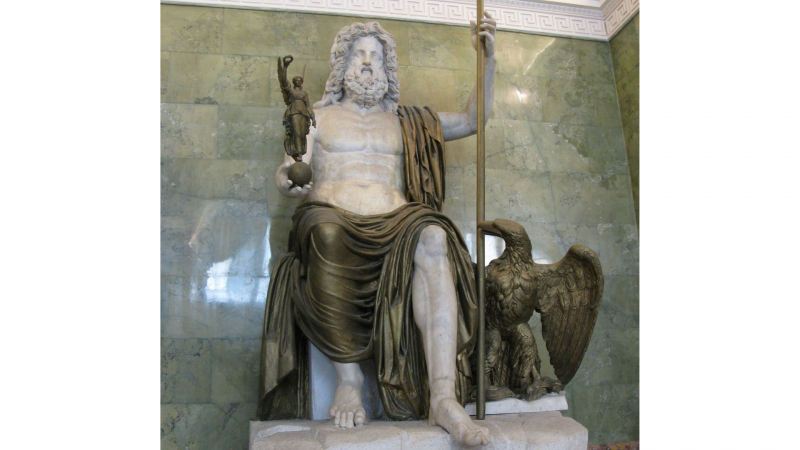
Photo: ThoughtCo -
Jupiter, the ruler of the Roman gods, and a priestess named Lo are said to have fallen in love in this tale. Jupiter, who is wed to Juno, falls deeply in love with Lo and transforms into a dark cloud as a result. Since no one was aware of the reality of the black cloud, the plan initially succeeds. But when Juno learns that her husband transformed himself into a dark cloud for Lo, she turns Lo into a white cow in retaliation. She then requests Argus, her most dependable guard, to keep an eye on him.
Because Argus has so many eyes, none of them would ever slumber at the same time. Jupiter thought it would be exceedingly difficult to liberate Lo from Argus. But he continued to ask his son Mercury to tell tales until Argus fell asleep, at which point he taught him. After repeated attempts, the idea proves effective. When Juno learns of this incident, she commands a fly to sting the white cow. Jupiter, who is aware of this scheme, persuades Juno not to carry it out, and as a result, he would never pursue Lo. Lo departs for Egypt after that and hasn't been back since. This is also one of the most exciting Roman mythologies and legends Toplist want to mention.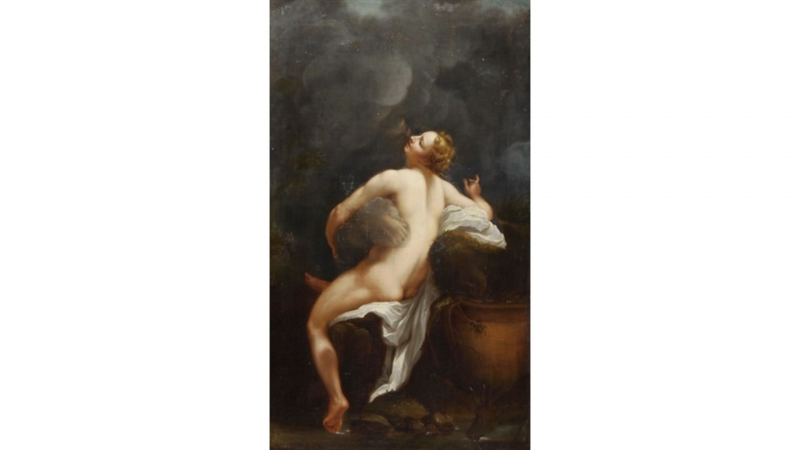
Photo: Artnet 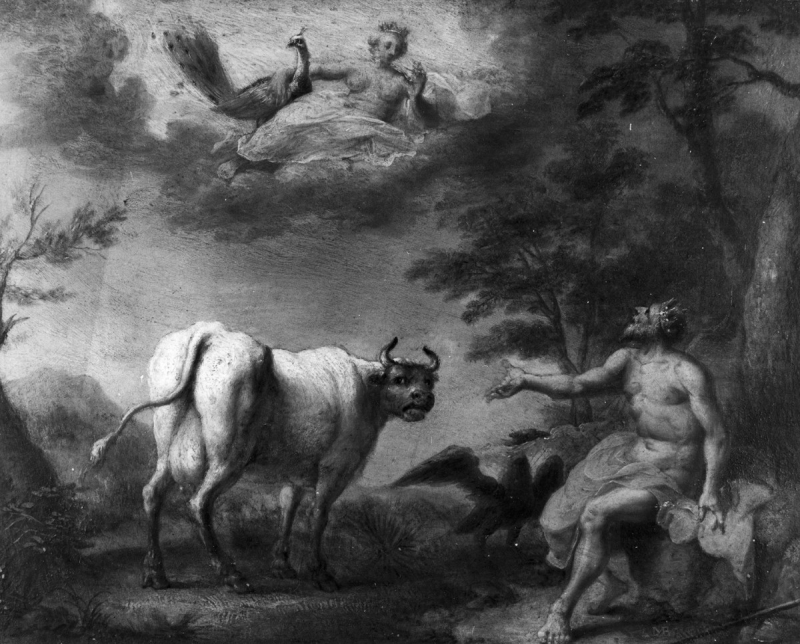
Photo: Art UK -
The Lucretia legend transformed the monarchical Roman government into a republic. The plot revolves around the rape and suicide of Lucretia, a fabled Roman heroine. One of the most sinister aspects of ancient Rome has surprisingly inspired people and made a lasting impression on the world. The story opens with Lucretia being raped by Tarquin, the son of an Etruscan king, which led to Lucretia's suicide and the subsequent revolt against the Roman emperor.
In order to fight the evil crimes of the Etruscan and Latins, the husband of Lucretia founded a republic with the help of powerful families and notable individuals. Since that time, rape has taken the top spot in European literature and art. The rape episode took place in 509 BCE, but the Gauls destroyed all documentation of it in 390 BCE. Even though the incident was terrible, everyone has subsequently used it as a lesson to learn from. Rape was seen as a serious offense, and those who committed it suffered harsh punishment.
The story of Lucretia, a lady who was sexually assaulted and embarrassed her male kinsmen, who then exacted revenge against the rapist and his family, served as a model for right female virtue not just in the Roman republic but also in later literature and art.
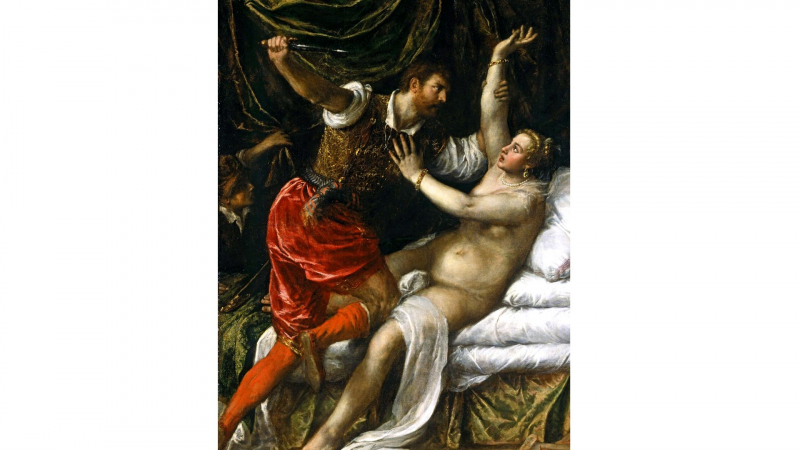
Photo: Wikipedia 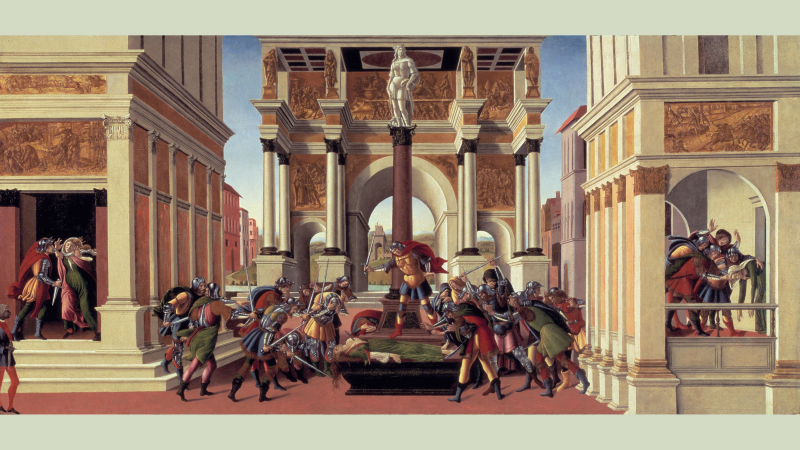
Photo: ThoughtCo -
The next most exciting Roman mythologies and legends is the legend about Apollo and Cassandra. This myth involves Cassandra, the daughter of Priam-Hecuba, and Apollo, the son of Zeus-Leto. Cassandra was the most attractive woman in Troy, while Apollo was the most attractive person in Olympus. According to the tragedy Agamemnon by Aeschylus, the deity Apollo loved Cassandra and offered her the ability to prophesy if she would obey his commands. After agreeing to the proposal and accepting the gift, Cassandra turned down the god's favors. According to the myth, he gave her the valuable gift she wanted without thinking twice. She didn't want to make love to him when she got it. Because of Cassandra's refusal, Apollo made the rule that no one would ever heed her advice, no matter what the circumstance.
Cassandra concurred with the plan and fulfilled the prophecy of power, but after doing so, she avoided Apollo and set him ablaze. In a fit of rage and retaliation, Apollo warned everyone not to believe anything she says since everything she says is a lie and a betrayal. Cassandra had a difficult time as a result of Apollo's rage because no one took her prophecy seriously. She attempted to warn Troy that the Greeks would destroy it, as Apollo prophesied, but no one was prepared to hear her or trust her. But as Cassandra had predicted, the Greeks devastated Troy.
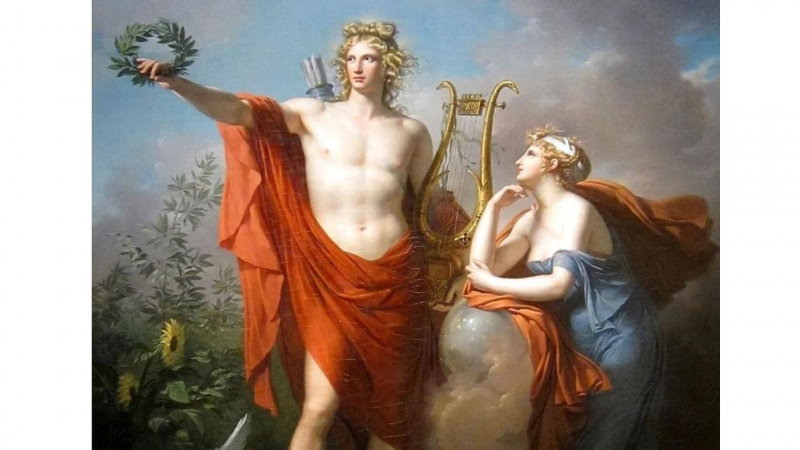
Photo: Dreams and Mythology 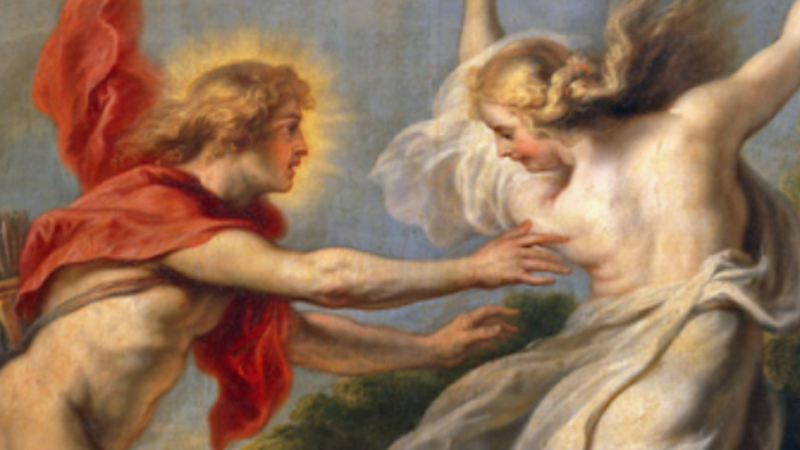
Photo: Myths and Legends -
The fabled hero of Rome and Troy, Aeneas, commonly referred to be Romulus and Remus' ancestors, is the subject of this legend. He had a significant impact on the Trojan War between Troy and the Greeks. The Aeneid, a poem by the Roman poet Virgil, claims that Aeneas went to Italy and, together with numerous others, became the ancestor of the Romans. The entire group was referred to as the Aeneads, and Aeneas was one of the select few who survived the Trojan War unharmed, even after Troy was obliterated.
As they worshiped each god and goddess, the crew of the Aeneads brought several statues of the Trojan gods to Italy to plant them. But it took them nearly six years and a difficult journey to get to Carthage. Aeneas encounters Dido, the Carthaginian queen, on his journey there, and the two fall in love. They intend to cohabitate in Carthage while creating a future for themselves. However, Aeneas departs from Carthage after a short while because his mother urges him to return in order to improve his future. When Dido discovers that Aeneas has abandoned her, she becomes angry and kills herself in Rome by stabbing herself with a sword while cursing at Aeneas.
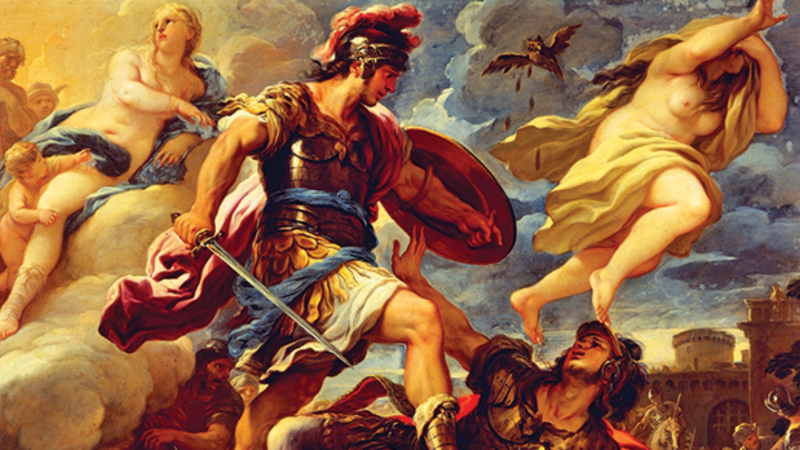
Photo: The Open University 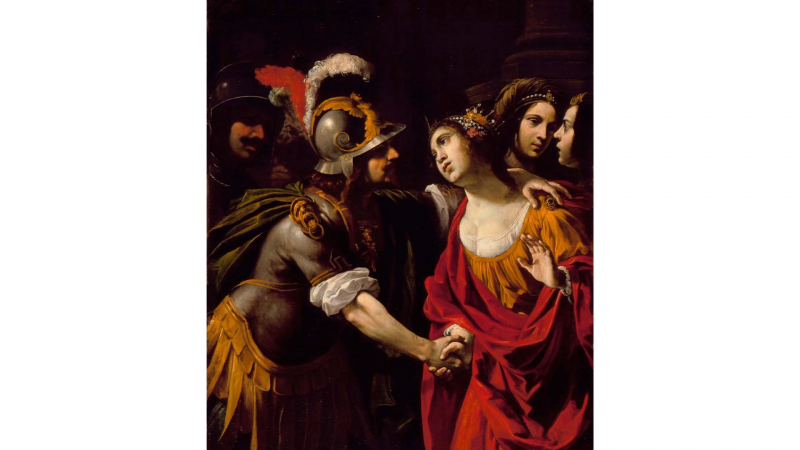
Photo: Encyclopedia Britannica -
Legend about legendary woman Cloedia is definitely one of the most exciting Roman mythologies and legends. According to this mythology, Cloelia was the most daring woman in all of antiquity. Along with other young noblemen and maidens, she was a common woman who was kidnapped by the Romans. The Romans abducted this group to give them to Lars Porsena, the Etruscan King, after they had defeated the Etruscans in battle. After being kidnapped, Cloelia made history when she led the other women away from the Porsena camp. Despite having escaped, their parents went back to the King because they were worried about being punished and wanted to see the pact through.
Cloelia had already pleased King Porsena with her courage, so he gave her a horse, a weapon, and freedom. When Cloelia is free, she requests that the other women be freed as well. Cloelia had already pleased King Porsena with her courage, so he gave her a horse, a weapon, and freedom. When Cloelia is free, she requests that the other women be freed as well. Cloelia and the other younger females are let free after King accepts her proposition. Since the incident, nearly all women—both then and now—have looked up to Cloelia as an inspiration.
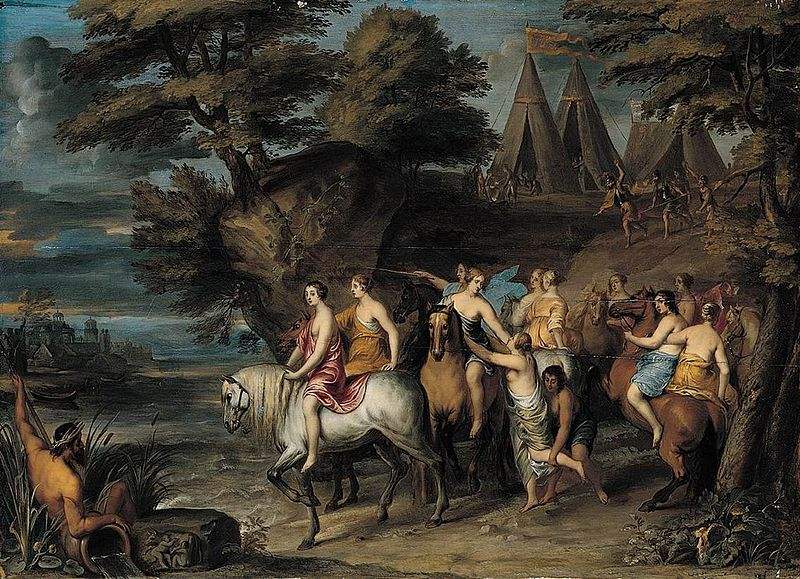
Rome - Wordpress 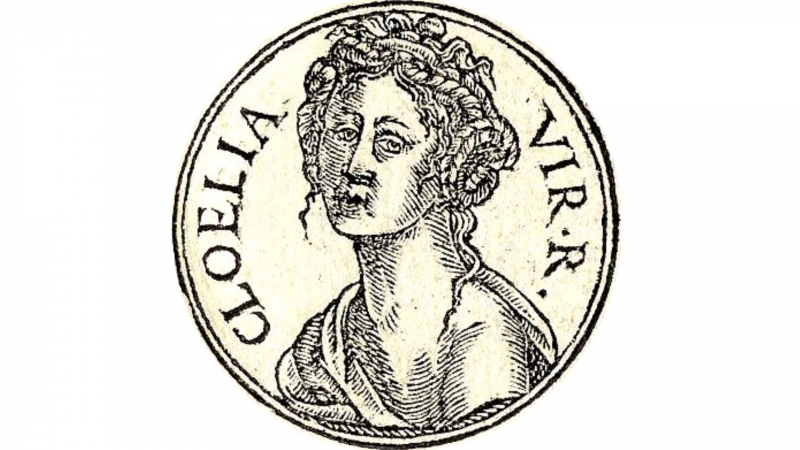
Photo: Wikipedia -
The most well-known myth involving the twin brothers Romulus and Remus is the fable of Romulus and Remus. The story of Romulus and Remus most likely began in the fourth century BCE and was written down in a coherent manner by the end of the third. It combines aspects from the Greek and Roman cultures. The story starts with the parents of the twins, Mars and Rhea Silvia, leaving them when they were quite little. To be floated to a new location, both boys were placed in a basket and dropped into the Tiber River. Until a female wolf discovered them and saved them, the baskets floated across the river.
The twins, who were raised by Faustulus and his wife Acca Larentia, led a group of intrepid youths who eventually killed Amulius and returned their grandfather to the throne. They then established a settlement on the spot where they had been saved. They started out as farmers and shepherds in a village, but they eventually moved back to Alba Longa's hometown. As a result of their arguments in favor of Numitor, Amulius and Remus were imprisoned in Alba Longa. When they both discovered their true identities, they started to argue on where to put the city. Due to Remus's death during the battle, Romulus was left to create Rome by himself. Rome and the Roman Empire as a whole have since advanced in every field and influenced everyone.
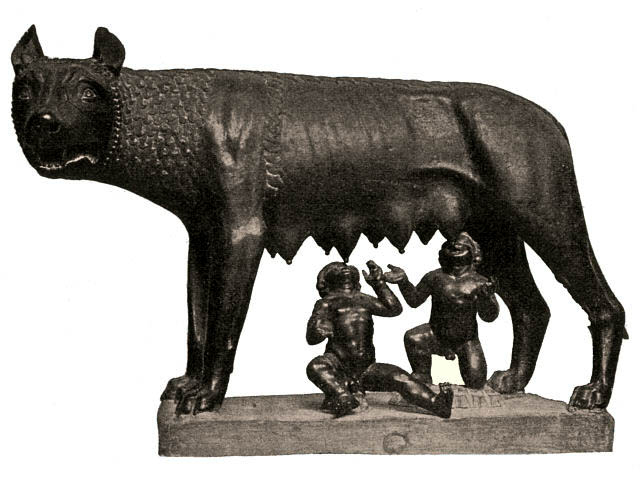
Photo: Wikipedia 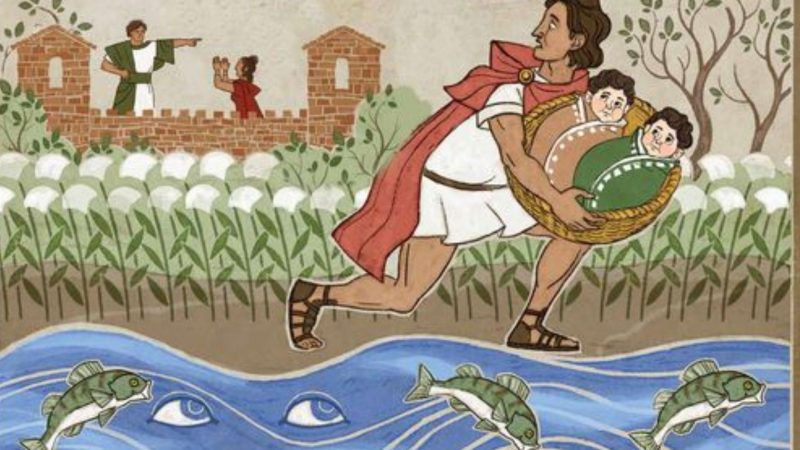
Photo: Readworks














